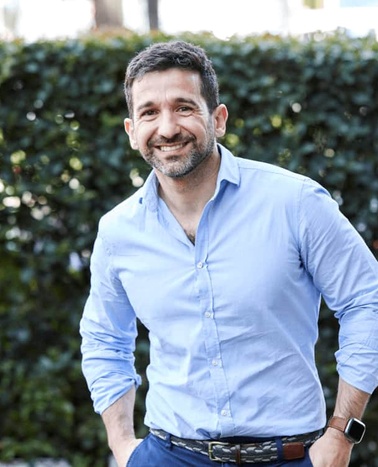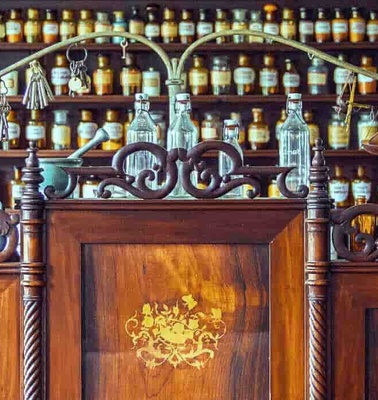
Manuel Atienza
After a long career in the pharmaceutical industry, I wanted to complement my experience in the sector with knowledge of strategic, financial and human resources management to help me lead more impactful projects.
When I decided to enroll in the Executive MBA at IE Business School, my company supported me right from the start. I’ve already noticed the impact of the program on my daily work, and I have met colleagues in the sector who have given me a different and enriching perspective.

“Working and studying is very hard and requires a lot of resilience, but it's rewarding.”
You studied molecular biology and clinical research. When did you decide to focus your career on consulting and management?
The decision to focus my career on consulting and management stemmed from my desire to have a wider impact on the pharmaceutical industry within the medical sector. After many years working in the sector, I realized how important the medical sector is becoming as you interact with all departments, from the beginning before commercialization to the end of the patent. In the medical sector, efficient and strategic management is very important to carry out projects with greater depth and scope, taking advantage of all available resources, both human and economic. I wanted to add value to my existing experience through my studies to enable me to influence broader and more strategic decisions within the company.
What motivated you to study the Executive MBA? What skills or tools did you feel were lacking in your position?
Often, you think that technical knowledge in your chosen field is enough and you have more than enough to do your job. However, I felt I lacked knowledge in areas such as strategic, financial and human resources management. This knowledge is essential to lead projects and teams effectively in my role, and the only way I could achieve excellence in my work. And most importantly, I needed to learn how to manage change; something of the utmost importance in the pharmaceutical industry.
Did your company support you studying from the start? How did you convince them?
My company supported me from the beginning and recognized the value that the Executive MBA at IE Business School could bring both to my personal development and the company. To convince them, I highlighted how the skills acquired in the program could translate into better project management and more informed decision-making. I also emphasized the importance of knowing how to lead a team.
How have you found combining your professional responsibilities at Eli Lilly with your Executive MBA classes?
Honestly, working and studying is very hard and requires a lot of resilience, but it's rewarding. I have had to learn to be very organized and efficient with my time, because I have to decide what’s super-important and what’s important. But, as I near the finish line, I feel proud of myself.
How has it been going back to the classroom after so many years in the world of work?
I never really stopped studying. I started my master's degree just as I was in the last year of my doctorate. In addition, in my work, it’s necessary to study continuously, since new scientific evidence emerges about many drugs and you have to be up-to-date. But it did encourage me to study different things, and I was passionate about the case method.
What’s been the first learning from the program that you’ve been able to apply in your position?
The first learnings that I’ve applied in my position are those related to leadership and operations management. A new team joined my department, and I had to organize their work. I applied the knowledge I learned in both subject areas, and the results were incredible.
What subjects from the program are you finding the most useful?
The subjects that I’m finding the most useful are leadership, strategy and finance. These areas are where I needed to strengthen my skills the most, and the knowledge I’ve gained has been a great help both inside and outside the company.
Have you met other professionals in the pharmaceutical sector through the Executive MBA and what have you learned from them?
Yes, I’ve networked with colleagues from other departments in the pharmaceutical sector in the program. Getting to know their vision from different perspectives is very enriching, and undoubtedly expands my understanding of the pharmaceutical industry.
What has most surprised you about the program?
What surprised me most about the program were my colleagues. They are all high-level professionals. Their experiences, their analyses, their ability to solve problems and their friendship have helped me open my mind and learn more about the world of management.
Have you noticed a change in how you work since starting the program?
Of course, and my teams at the company have noticed that, too. I feel more confident, more insightful. It's been a gradual change, but now in meetings I’m very different. I can look beyond the clinical data and I feel more confident giving my opinion.
What soft skills are most useful in the pharmaceutical industry?
The most useful soft skills in the pharmaceutical industry include effective communication, leadership skills, teamwork and adaptability. These are crucial for navigating an environment that’s constantly evolving and highly collaborative.
Would you recommend that other companies invest in having their employees do this program?
Of course, I would encourage them to do so. As I’ve explained, there are many benefits to having well-trained leaders in management and strategy, not only for the individual, but also for the organization.